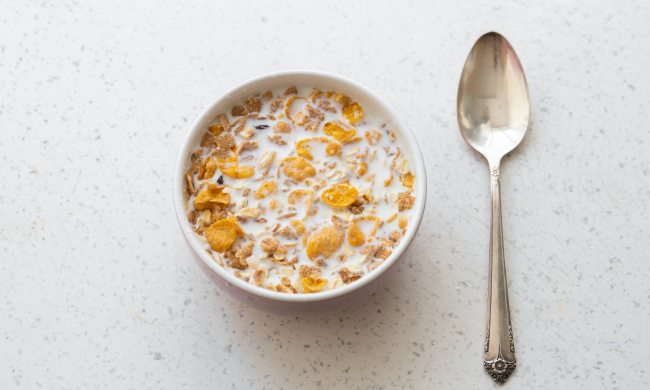With so many diets out there, it can be difficult to know which one is right for you. A few of the most popular eating methods include the Mediterranean diet, the DASH diet, and the Whole30 diet; they each have their perks and downsides. As a nutritionist, I constantly have clients who feel like they have tried everything under the sun, yet they are still searching for another alternative. This is where the vegan diet could come in.
For some people, the vegan diet can be a life changer. Keep reading to learn about the many benefits of a vegan diet, as well as an example meal plan.
A vegan diet can help you lose weight

As with pretty much any diet, it is certainly possible to lose weight on a vegan diet, provided your caloric intake is less than your daily caloric expenditure. Vegan diets are often quite conducive to weight loss because plant-based foods tend to be more filling from a volume perspective than animal products.
Vegetables, fruits, and legumes contain a lot of water and fiber relative to foods like cheese, meat, and eggs. Therefore, the caloric density of many vegan foods is substantially lower than foods derived from animals, which makes it easier to feel full on fewer calories. Most people who switch to a vegan diet experience significant weight loss as long as they focus on eating whole, natural foods.
A vegan diet can lower blood pressure

Vegetables and fruits contain antioxidants, minerals like potassium, and nitrates, which can all help lower blood pressure. Research has found that those who follow a vegan diet tend to experience significant improvements in blood pressure, with decreases in both systolic and diastolic pressures. According to an NIH study, “[for hypertension], vegans had 75% risk reduction when compared to non-vegetarians.”
A vegan diet can reduce the risk of cardiovascular disease

A vegan diet can lower both blood pressure and cholesterol. Most studies show a decrease in both “bad” LDL cholesterol and total cholesterol levels. Moreover, longitudinal studies have demonstrated a reduced risk of heart disease, stroke, and atherosclerosis in vegans compared to omnivorous diets.
Again, diet quality is the most important factor in capitalizing on the health benefits. It’s technically possible to follow a vegan diet and eat mostly processed junk food and snacks. The key is to eat whole foods in their natural state as much as possible. This includes vegetables, fruits, legumes, nuts, and seeds.
A vegan diet is rich in antioxidants

Most plant-based foods, such as berries, vegetables, seeds, and soy, are high in antioxidants. For example, blueberries, red cabbage, blackberries, and other purple and blue foods contain anthocyanins, antioxidants that have been shown to lower cholesterol, reduce inflammation, improve cognitive performance, and reduce the risk of cancer. They also contain flavonoids and procyanidins, polyphenols that can improve mood, cognition, memory, and learning.
A vegan diet supports digestive health
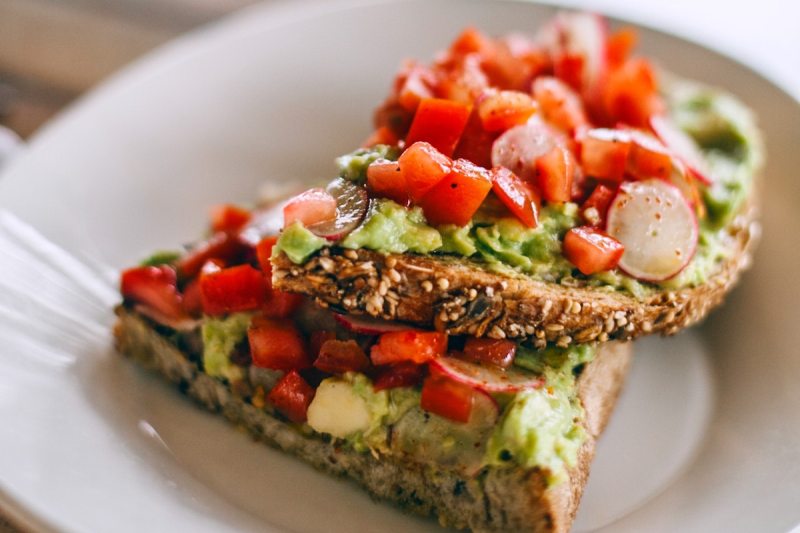
The high-fiber vegan diet promotes healthy digestion and may alleviate constipation. The beneficial bacteria residing in your gut aid digestion by breaking down fiber and large macronutrients into absorbable nutrients. They also produce key vitamins such as vitamin B12 and K, and they play essential roles in fending off illnesses and infections. These good bacteria thrive with plant-based foods high in prebiotic fibers, while animal-based foods are preferentially selected for pathogenic microbes.
Therefore, consuming a diet high in meat, dairy, cheese, and eggs can disrupt your gut microbiome and cause imbalances in the bacteria (known as symbiosis). This can lead to indigestion, bloating, weight gain and obesity, inflammation, skin conditions, and bowel difficulties.
A vegan diet is anti-inflammatory

Plant-based foods tend to be the best anti-inflammatory food sources, as they are rich in antioxidants and low in inflammatory compounds like processed oils and saturated fats. To maximize the anti-inflammatory effects of a vegan diet, it’s important to limit your intake of added sugars. Moreover, consuming omega-3 fatty acids in the form of flaxseeds, algae or seaweed, chia seeds, pecans, and walnuts can also reduce inflammation.
A vegan diet can regulate blood sugar and improve insulin sensitivity

The vegan diet has been found to lower blood sugar and improve insulin sensitivity, thereby decreasing the risk of type 2 diabetes. This is predominantly due to the high fiber content, vegetable intake, and low-glycemic complex carbohydrates such as legumes and root vegetables, which are high in resistant starch. The vegan diet is also low in saturated fat, which has been associated with elevated blood sugar levels.
A vegan diet can protect against cancer
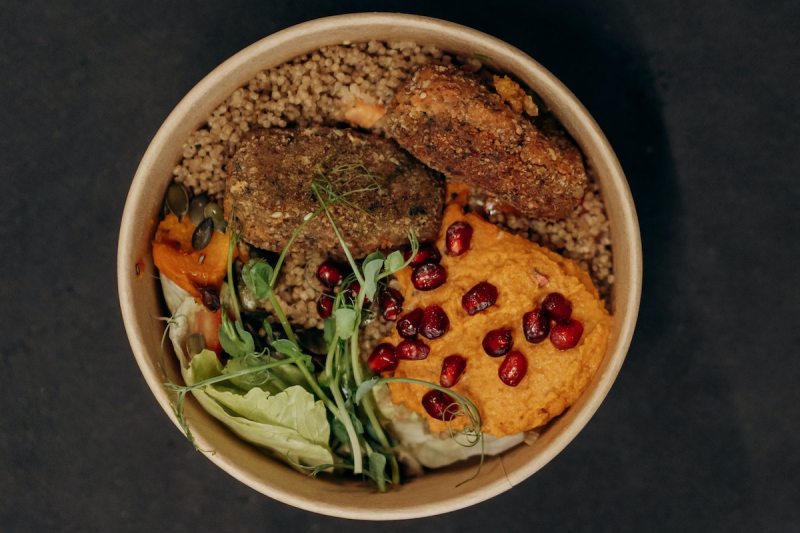
The vegan diet is rich in disease-fighting antioxidants and phytonutrients. Between vegetables, fruits, soy, and other legumes, hemp and other seeds, and nuts, vegans consume a variety of superfoods that are packed with vitamins, minerals, and free-radical-scavenging antioxidants.
Antioxidants prevent oxidative damage in the body, inhibit tumor genes, and confer anti-inflammatory effects. Accordingly, the vegan diet has been found to lower the risk of certain cancers, such as prostate cancer, stomach cancer, colon cancer, and breast cancer.
A vegan diet is good for the environment
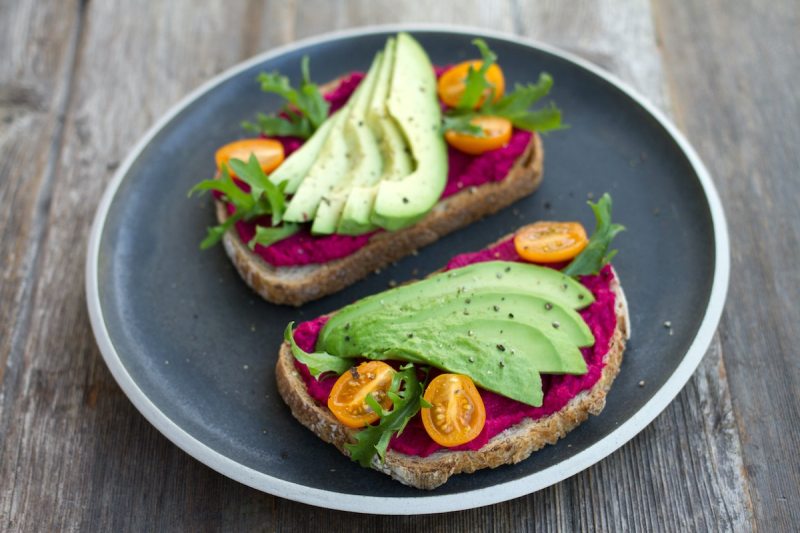
Vegans are primary consumers rather than secondary consumers. As such, the vegan diet consumes far less water and natural resources than omnivorous diets and leaves a much smaller carbon footprint. We only have one planet, and the environmental impact of many of our choices is rapidly depleting our natural resources and deteriorating our global home.
A vegan diet protects animals from harm

Animal welfare is a driving force for many people who decide to follow a vegan diet. The meat, dairy, and egg industries are rife with troublesome practices, and many vegans connect to the idea of sparing the lives of animals through their dietary choices.
Example vegan meal plan
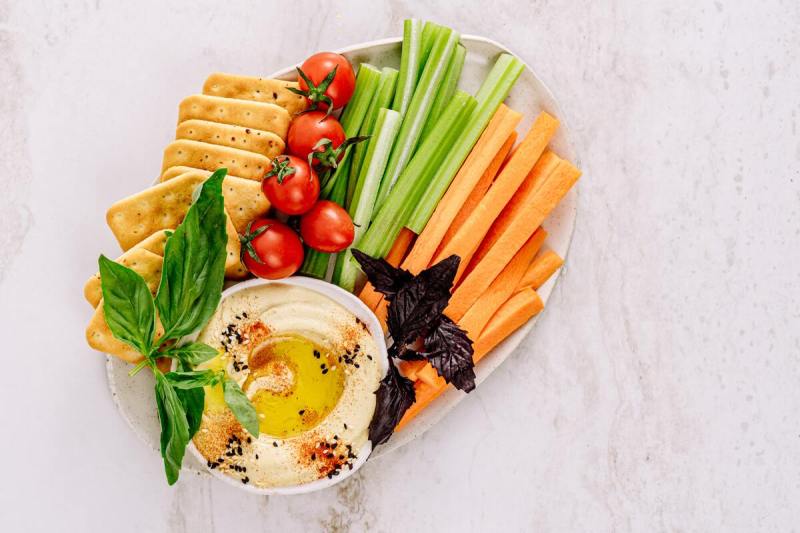
If you’re interested in following a vegan diet but aren’t sure exactly what to eat, check out this example meal plan. It includes simple meals and ingredients you likely eat already, so it can be an easy way to transition into the vegan diet.
Breakfast
- Tofu scramble: Firm tofu, turmeric, garlic powder, onion powder, spinach, cherry tomatoes, olive oil, salt, and pepper
Snack
- Almond butter and banana toast: Whole-grain bread, almond butter, sliced banana, and a sprinkle of chia seeds
Lunch
- Quinoa buddha bowl: Cooked quinoa, roasted sweet potatoes, steamed broccoli, avocado slices, chickpeas, tahini dressing, and lemon juice
Snack
- Hummus and veggie sticks: Hummus, sliced carrots, celery, cucumber, and bell peppers
Dinner
- Lentil and vegetable stir-fry: Cooked lentils, mixed stir-fry vegetables (bell peppers, broccoli, zucchini), tamari or soy sauce, garlic, ginger, and sesame oil




